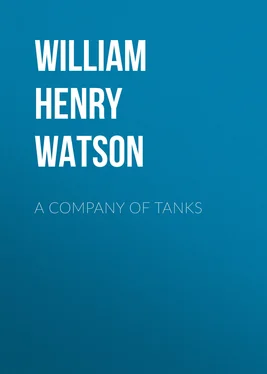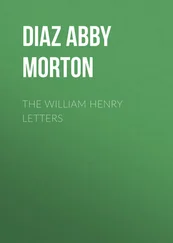William Henry Lowe Watson - A Company of Tanks
Здесь есть возможность читать онлайн «William Henry Lowe Watson - A Company of Tanks» — ознакомительный отрывок электронной книги совершенно бесплатно, а после прочтения отрывка купить полную версию. В некоторых случаях можно слушать аудио, скачать через торрент в формате fb2 и присутствует краткое содержание. Жанр: foreign_prose, История, foreign_edu, foreign_antique, на английском языке. Описание произведения, (предисловие) а так же отзывы посетителей доступны на портале библиотеки ЛибКат.
- Название:A Company of Tanks
- Автор:
- Жанр:
- Год:неизвестен
- ISBN:нет данных
- Рейтинг книги:3 / 5. Голосов: 1
-
Избранное:Добавить в избранное
- Отзывы:
-
Ваша оценка:
- 60
- 1
- 2
- 3
- 4
- 5
A Company of Tanks: краткое содержание, описание и аннотация
Предлагаем к чтению аннотацию, описание, краткое содержание или предисловие (зависит от того, что написал сам автор книги «A Company of Tanks»). Если вы не нашли необходимую информацию о книге — напишите в комментариях, мы постараемся отыскать её.
A Company of Tanks — читать онлайн ознакомительный отрывок
Ниже представлен текст книги, разбитый по страницам. Система сохранения места последней прочитанной страницы, позволяет с удобством читать онлайн бесплатно книгу «A Company of Tanks», без необходимости каждый раз заново искать на чём Вы остановились. Поставьте закладку, и сможете в любой момент перейти на страницу, на которой закончили чтение.
Интервал:
Закладка:
They have run short of bombs. An urgent message for fresh supplies comes through, and the staff captain hurries out to make additional arrangements.
There is little news of the tanks. One report states that no tanks have been seen, another that a tank helped to clear up a machine-gun post, a third that a tank is burning.
At last R., one of my tank commanders, bursts in. He is grimy, red-eyed, and shaken.
"Practically all the tanks have been knocked out, sir!" he reported in a hard excited voice.
Before answering I glanced rapidly round the cellar. These Australians had been told to rely on tanks. Without tanks many casualties were certain and victory was improbable. Their hopes were shattered as well as mine, if this report were true. Not an Australian turned a hair. Each man went on with his job.
I asked R. a few questions. The brigade-major was listening sympathetically. I made a written note, sent off a wire to the colonel, and climbed into the open air.
It was a bright and sunny morning, with a clear sky and a cool invigorating breeze. A bunch of Australians were joking over their breakfasts. The streets of the village were empty, with the exception of a "runner," who was hurrying down the road.
The guns were hard at it. From the valley behind the village came the quick cracks of the 18-pdrs., the little thuds of the light howitzers, the ear-splitting crashes of the 60-pdrs., and, very occasionally, the shuddering thumps of the heavies. The air rustled and whined with shells. Then, as we hesitated, came the loud murmur, the roar, the overwhelming rush of a 5.9, like the tearing of a giant newspaper, and the building shook and rattled as a huge cloud of black smoke came suddenly into being one hundred yards away, and bricks and bits of metal came pattering down or swishing past.
The enemy was kind. He was only throwing an occasional shell into the village, and we walked down the street in comparative calm.
When we came to the brick shelter at the farther end of the village we realised that our rendezvous had been most damnably ill-chosen. Fifty yards to the west the Germans, before their retirement, had blown a large crater where the road from Ecoust joins the road from Vaulx-Vraucourt, and now they were shelling it persistently. A stretcher party had just been caught. They lay in a confused heap half-way down the side of the crater. And a few yards away a field-howitzer battery in action was being shelled with care and accuracy.
We sat for a time in this noisy and unpleasant spot. One by one officers came in to report. Then we walked up the sunken road towards the dressing station. When I had the outline of the story I made my way back to the brigade headquarters in the cellar, and sent off a long wire. My return to the brick shelter was, for reasons that at the time seemed almost too obvious, both hasty and undignified. Further reports came in, and when we decided to move outside the village and collect the men by the bank where the tanks had sheltered a few hours before, the story was tolerably complete.
All the tanks, except Morris's, had arrived without incident at the railway embankment. Morris ditched at the bank and was a little late. Haigh and Jumbo had gone on ahead of the tanks. They crawled out beyond the embankment into No Man's Land and marked out the starting-line. It was not too pleasant a job. The enemy machine-guns were active right through the night, and the neighbourhood of the embankment was shelled intermittently. Towards dawn this intermittent shelling became almost a bombardment, and it was feared that the tanks had been heard. 9 9 We learned later that they had been heard.
Skinner's tank failed on the embankment. The remainder crossed it successfully and lined up for the attack just before zero. By this time the shelling had become severe. The crews waited inside their tanks, wondering dully if they would be hit before they started. Already they were dead-tired, for they had had little sleep since their long painful trek of the night before.
Suddenly our bombardment began—it was more of a bombardment than a barrage—and the tanks crawled away into the darkness, followed closely by little bunches of Australians.
On the extreme right Morris and Puttock of Wyatt's section were met by tremendous machine-gun fire at the wire of the Hindenburg Line. They swung to the right, as they had been ordered, and glided along in front of the wire, sweeping the parapet with their fire. They received as good as they gave. Serious clutch trouble developed in Puttock's tank. It was impossible to stop since now the German guns were following them. A brave runner carried the news to Wyatt at the embankment. The tanks continued their course, though Puttock's tank was barely moving, and by luck and good driving they returned to the railway, having kept the enemy most fully occupied in a quarter where he might have been uncommonly troublesome.
Morris passed a line to Skinner and towed him over the embankment. They both started for Bullecourt. Puttock pushed on back towards Noreuil. His clutch was slipping so badly that the tank would not move, and the shells were falling ominously near. He withdrew his crew from the tank into a trench, and a moment later the tank was hit and hit again.
Of the remaining two tanks in this section we could hear nothing. Davies and Clarkson had disappeared. Perhaps they had gone through to Hendecourt. Yet the infantry of the right brigade, according to the reports we had received, were fighting most desperately to retain a precarious hold on the trenches they had entered.
In the centre Field's section of three tanks were stopped by the determined and accurate fire of forward field-guns before they entered the German trenches. The tanks were silhouetted against the snow, and the enemy gunners did not miss.
The first tank was hit in the track before it was well under way. The tank was evacuated, and in the dawning light it was hit again before the track could be repaired.
Money's tank reached the German wire. His men must have "missed their gears." For less than a minute the tank was motionless, then she burst into flames. A shell had exploded the petrol tanks, which in the old Mark I. were placed forward on either side of the officer's and driver's seats. A sergeant and two men escaped. Money, best of good fellows, must have been killed instantaneously by the shell.
Bernstein's tank was within reach of the German trenches when a shell hit the cab, decapitated the driver, and exploded in the body of the tank. The corporal was wounded in the arm, and Bernstein was stunned and temporarily blinded. The tank was filled with fumes. As the crew were crawling out, a second shell hit the tank on the roof. The men under the wounded corporal began stolidly to salve the tank's equipment, while Bernstein, scarcely knowing where he was, staggered back to the embankment. He was packed off to a dressing station, and an orderly was sent to recall the crew and found them still working stubbornly under direct fire.
Swears' section of four tanks on the left were slightly more fortunate.
Birkett went forward at top speed, and, escaping the shells, entered the German trenches, where his guns did great execution. The tank worked down the trenches towards Bullecourt, followed by the Australians. She was hit twice, and all the crew were wounded, but Birkett went on fighting grimly until his ammunition was exhausted and he himself was badly wounded in the leg. Then at last he turned back, followed industriously by the German gunners. Near the embankment he stopped the tank to take his bearings. As he was climbing out, a shell burst against the side of the tank and wounded him again in the leg. The tank was evacuated. The crew salved what they could, and, helping each other, for they were all wounded, they made their way back painfully to the embankment. Birkett was brought back on a stretcher, and wounded a third time as he lay in the sunken road outside the dressing station. His tank was hit again and again. Finally it took fire, and was burnt out.
Читать дальшеИнтервал:
Закладка:
Похожие книги на «A Company of Tanks»
Представляем Вашему вниманию похожие книги на «A Company of Tanks» списком для выбора. Мы отобрали схожую по названию и смыслу литературу в надежде предоставить читателям больше вариантов отыскать новые, интересные, ещё непрочитанные произведения.
Обсуждение, отзывы о книге «A Company of Tanks» и просто собственные мнения читателей. Оставьте ваши комментарии, напишите, что Вы думаете о произведении, его смысле или главных героях. Укажите что конкретно понравилось, а что нет, и почему Вы так считаете.












